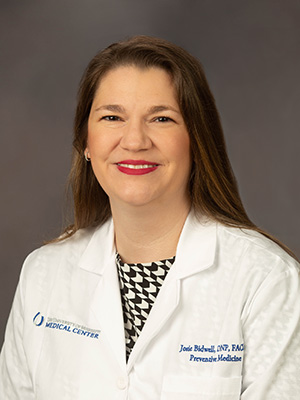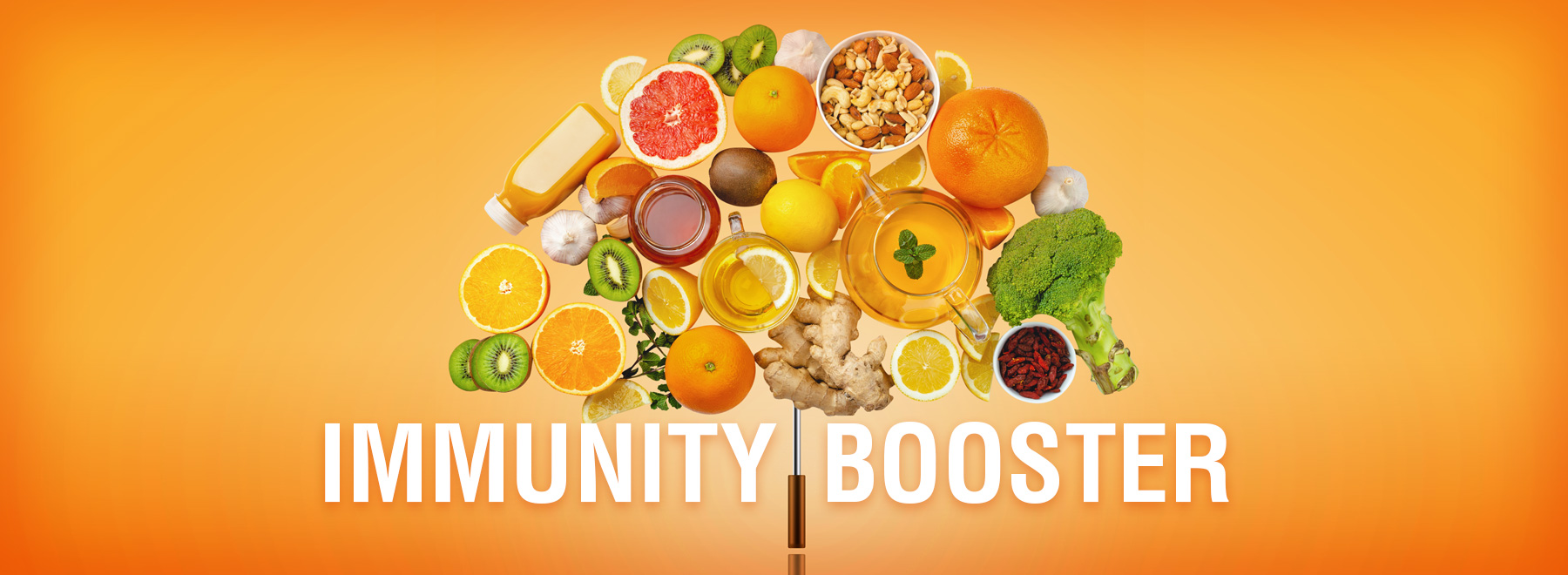To bolster viral defenses, nutrition is body’s bread and butter
While there is no medicine with a punch sufficient to KO COVID-19, there is a natural way to potentially soften its body blows: eating right.
No certain foods or nutrients target COVID-19, specifically, but there are many you can include in your diet to boost your immune system, generally – and viruses and other conditions will know they’ve been in a fight.

“Poor nutrition is associated with a poor immune system,” said Dr. Elena Dent, an instructor in the Department of Preventive Medicine at the University of Mississippi Medical Center. “When you have a good diet, typically, you have better outcomes with an illness, including a virus.
“If you get the flu, for instance, having a good nutritional base, including enough protein and calories, can shorten the recovery time,” said Dent, who has worked as a dietitian for a dozen years and earned a Ph.D. in physiology and biophysics. “But if you come across any claims, particularly on social media, that certain foods or nutrients fight off COVID-19, be very skeptical. Those claims are not evidence-based, so far.”
A healthy diet is her best recommendation.
“And the greater the variety, the better, including foods containing zinc, B6, B12, vitamins A and E, and, for sure, iron,” she said. “Chicken nuggets can only provide so much.”

Practice what is known as “eating the rainbow,” said Dr. Josie Bidwell, UMMC associate professor of preventive medicine and Lifestyle Medicine nurse practitioner, referring to the consumption of a multi-colored multiplicity of fresh or frozen produce.
“For instance, every single day, I try to eat dark berries – blueberries, strawberries, raspberries – which are great sources of Vitamin C, fiber and antioxidants,” Bidwell said.
A host of the call-in radio show Southern Remedy on Mississippi Public Broadcasting, Bidwell has fielded a rainbow of questions about contracting COVID-19, including: How can you improve your health outcomes if you also are confronting a chronic disease?
“Mississippi’s numbers show that the most common chronic diseases people had when they have died from the virus were hypertension, diabetes, cardiovascular disease and obesity,” Bidwell said. A poor lifestyle can contribute to all of those conditions while battering your immune system, she said.
“But if we concentrate only on nutrition, you won’t achieve ideal results. We also have to be physically active, manage stress and get enough sleep.”

Without a healthy body, it takes longer for you to fight off a disease and recover, said Dr. Fiona Lewis, who has a doctorate in public health and, recently, left her position as instructor of preventive medicine at UMMC to focus more on her private business.
“As we have seen with COVID, some patients who die may have had a cold or the flu.” Lewis said. “But for someone who contracts COVID and does not have severe chronic diseases, such as high blood pressure and diabetes, having a strong immune system would give them an advantage in healing.”
Many Mississippians would do well to add certain foods and nutrients to their diets, these three experts say. But be careful how you add them: Canned fruits, for instance, are processed to within an inch of their lives and lack some essential vitamins, nutrients and fiber, said Lewis, who is also a dietitian and a plant-based chef.
“I definitely don’t recommend them,” she said.
This is also true of processed fruit juices, which are often sweetened with sugar and bereft of pulp – that is, fiber, Bidwell said.
Fresh or frozen fruits and vegetables, especially the leafy green kind, such as kale and spinach, are preferred. Lewis recommends five to seven servings per day, with fewer than 140 milligrams of sodium per serving if you resort to vegetables from a can.
Along with whole grains, fruits and vegetables provide the necessary amount of fiber many Mississippians – and many Americans, for that matter – aren’t getting, Dent said.
“But a vegetable plate does not include mac and cheese. Also, people in Mississippi, including myself, like corn and peas, which are good, but don’t depend on them alone.”
Another nutrient we could do well to make better friends with is Vitamin D, Lewis said. And if you have a plant-based diet, as Bidwell does, you may need to take supplements to fulfill your daily needs for vitamins B12 and D.
But a supplement shouldn’t be the main source of a nutrient, Lewis said. Beware of its potency – too-high levels can be toxic, especially when it comes to vitamins A and D.
“I recommend you have a conversation with your health care provider before you take any dietary supplements,” Bidwell said. “They can also interact with other supplements and drugs.
“Also, buy good, quality, reputable supplements. They aren’t regulated by the FDA, but look for the USP (U.S. Pharmacopeia Convention) mark on the bottles. This verifies that the supplement does what it’s supposed to do and that it contains the stated quantity.”
If you have questions about your diet, go to your primary care physician or nurse practitioner, who may refer you to a dietitian, Bidwell said.
“A dietitian can help you with meal planning. That’s especially important if you have a certain chronic illness, such as kidney disease, which would definitely affect your meal plan.
“We can also do nutritional overhauls that will help you improve your blood sugar level, for example.”
The following is a rundown of the role, and sources of, nutrients that can keep you healthy:
- Beta carotene
Converts into Vitamin A. It regulates the immune system by protecting our skin, tissue, mouth, stomach, intestines, respiratory system and more from being compromised by bacteria and viruses.
Sources include carrots and other colorful vegetables, such as tomatoes, sweet potatoes, broccoli and spinach. - Iron
A mineral needed to make hemoglobin, which sends oxygen through the body, it combats anemia – a lack of hemoglobin or red blood cells, which are needed for good health.
Plant sources include beets, mustard greens, kale, leeks, spinach, beans, lentils, peas, nuts seeds and whole grains. Other sources include fortified cereals and grains, chicken, eggs, liver, ham, pork, red salmon, sardines. - Probiotics
Salutary bacteria that keep your gut healthy and regulate the immune system.
Sources include yogurt and fermented foods. - Protein
A nutrient that can help in healing and recovery.
Among the best sources are nuts, seeds, beans, lentils, milk, eggs, yogurt and chicken. - Vitamin B6
Allows the body to use and store energy and form hemoglobin.
Sources include pork, poultry, fish, bread, whole grain cereals, eggs, vegetables, milk, peanuts, potatoes. - Vitamin B12
Useful for making red blood cells, promoting a healthy nervous system, releasing energy from food.
Sources include meat, salmon, cod, milk, cheese, eggs, some fortified breakfast cereals. - Vitamin C
Helps regulate and produce antibodies.
Sources include red bell peppers, citrus fruits, strawberries and tomatoes. - Vitamin D
Promotes healthy bones.
Sources include fatty fish, such as salmon, sardines and tuna; fortified plant and dairy milk; and certain eggs, depending on the chicken’s diet. - Vitamin E
An antioxidant, which fights off free radicals – molecules associated with human disease, including cancer.
Sources include seeds, such as sunflower and almonds, which are technically seeds; nuts, such as hazelnuts, pine nuts and peanuts; sunflower oil; safflower oil; peanut and hazelnut butters. - Zinc
A nutrient that helps with healing.
Sources include whole grains, beans, nuts, seeds, milk, seafood, poultry, lean meat.
The above article appears in CONSULT, UMMC’s monthly e-newsletter sharing news about cutting-edge clinical and health science education advances and innovative biomedical research at the Medical Center and giving you tips and suggestions on how you and the people you love can live a healthier life. Click here and enter your email address to receive CONSULT free of charge. You may cancel at any time.



